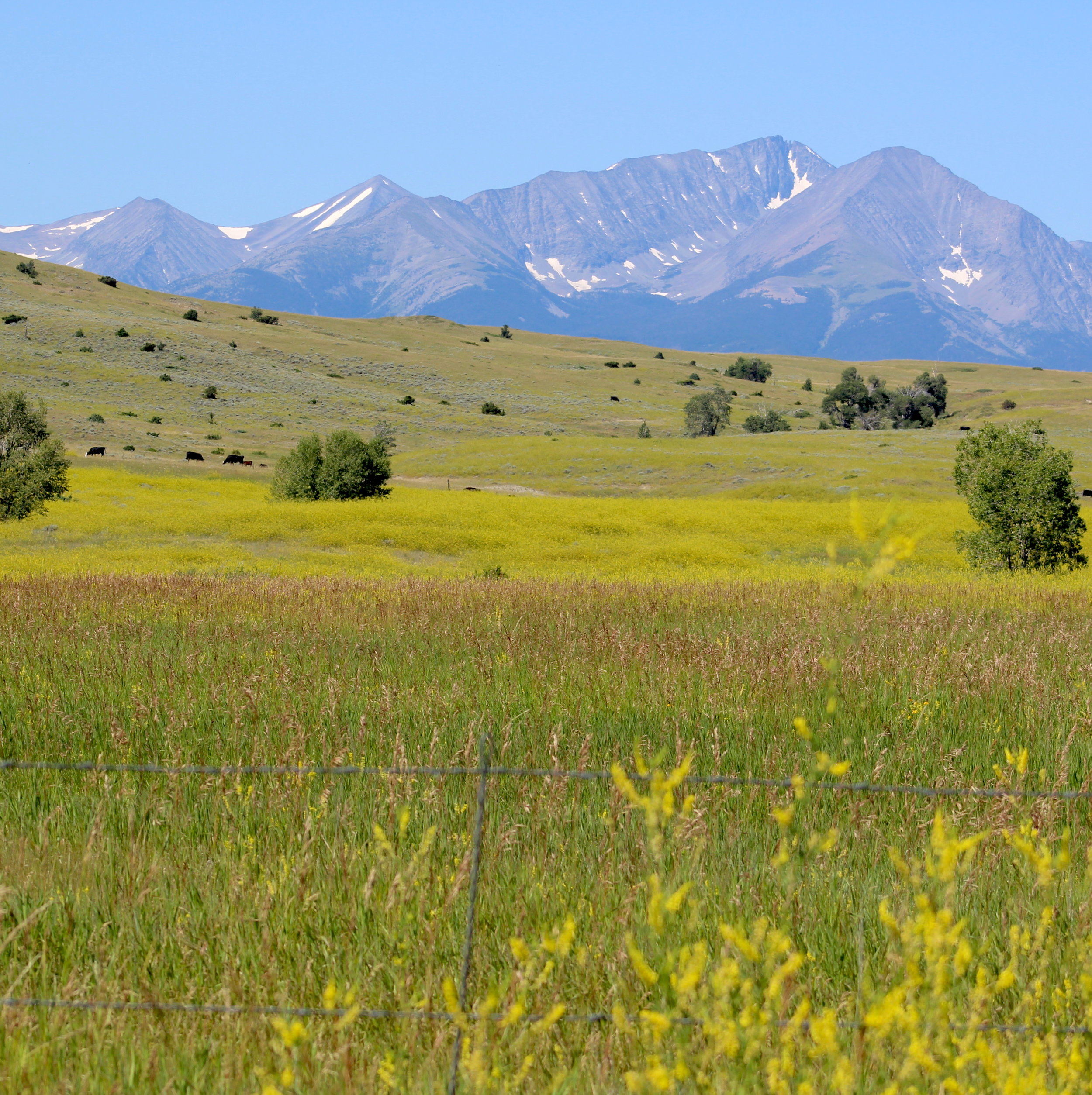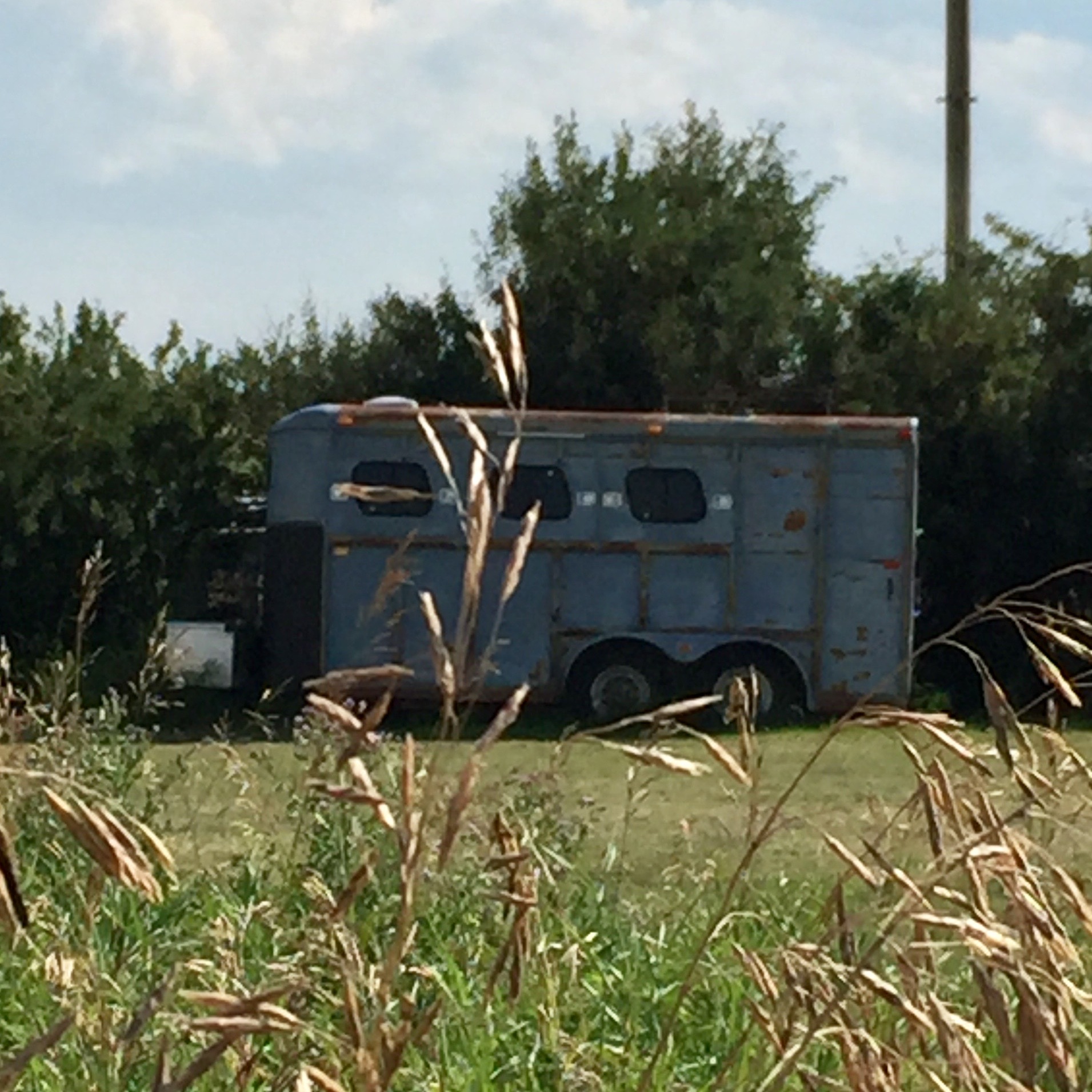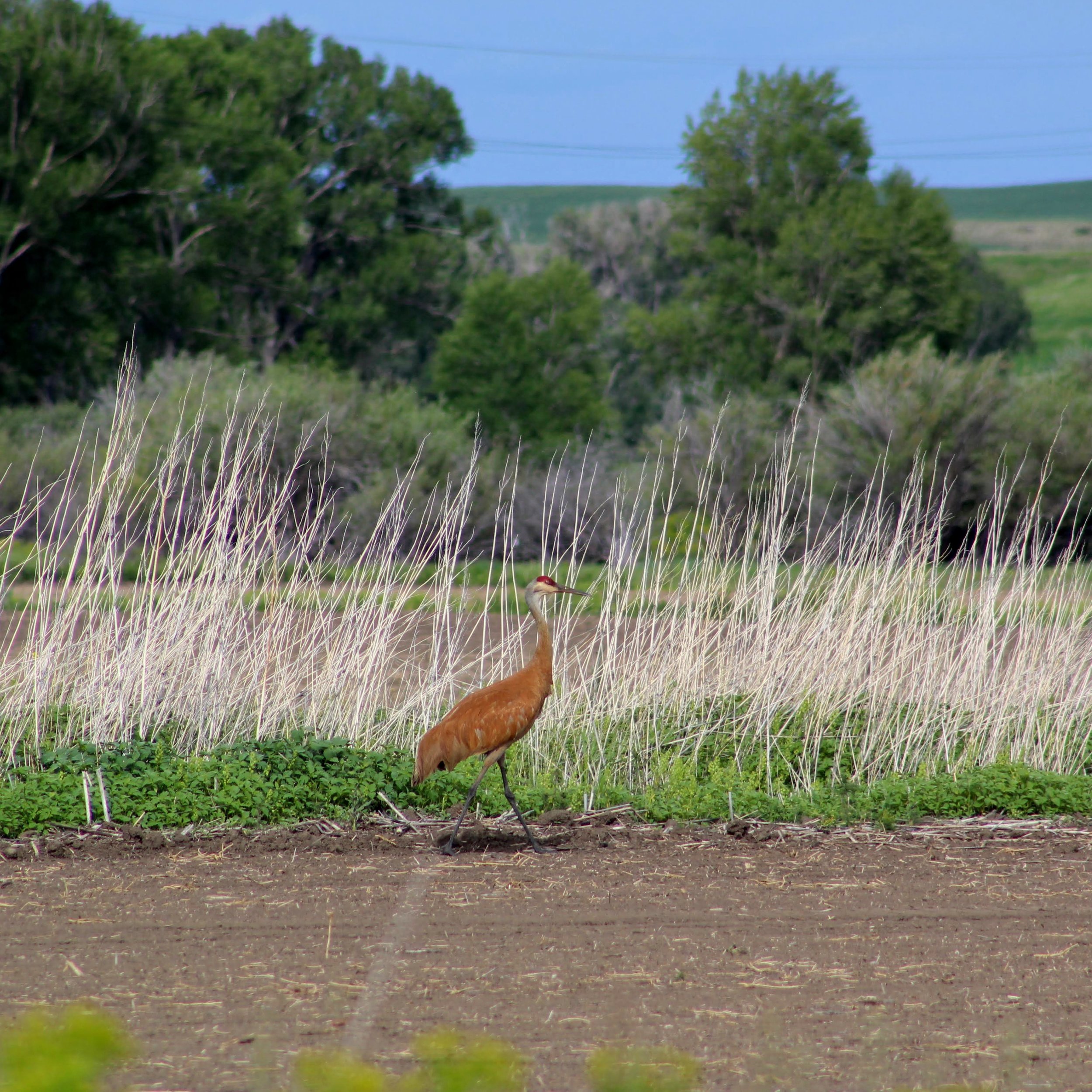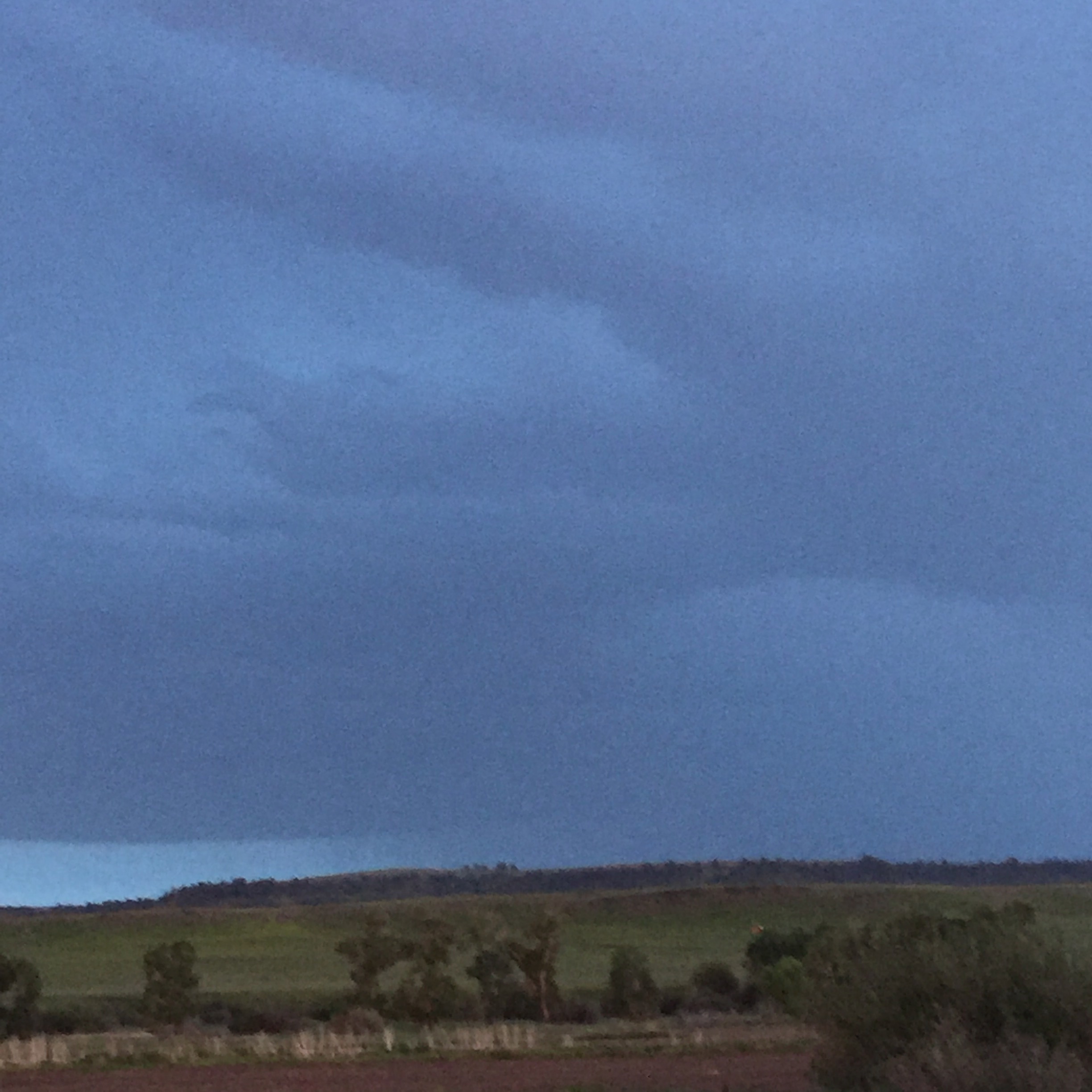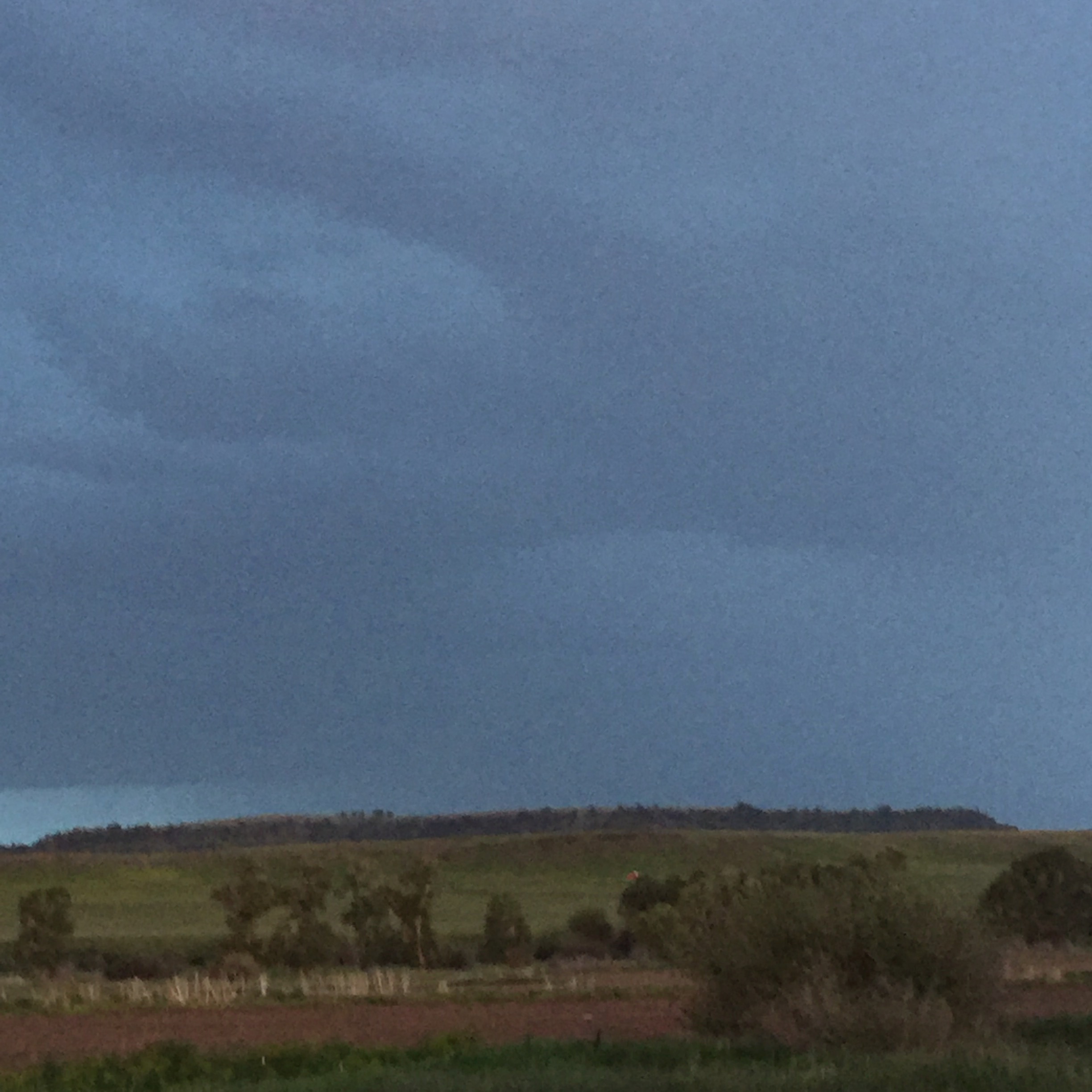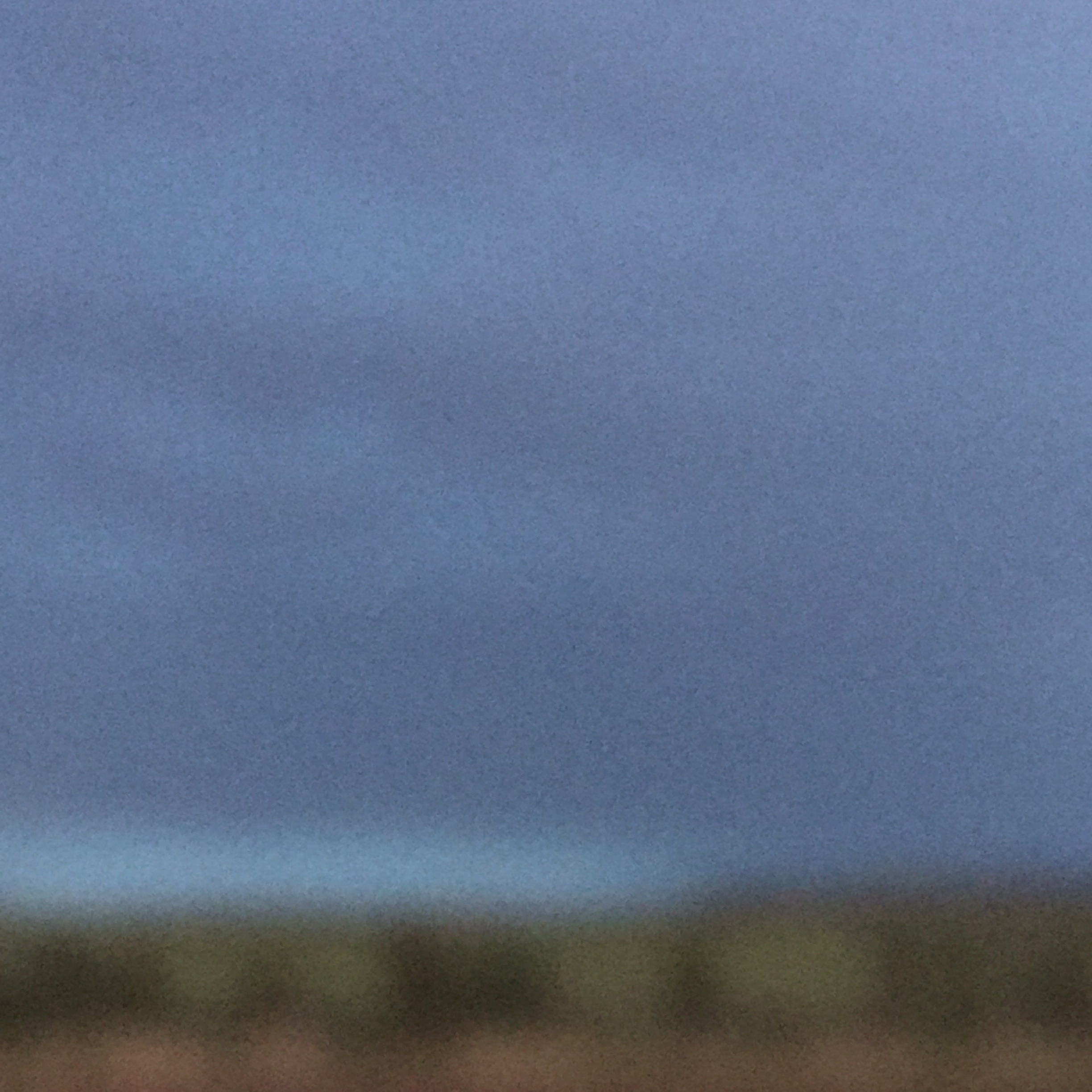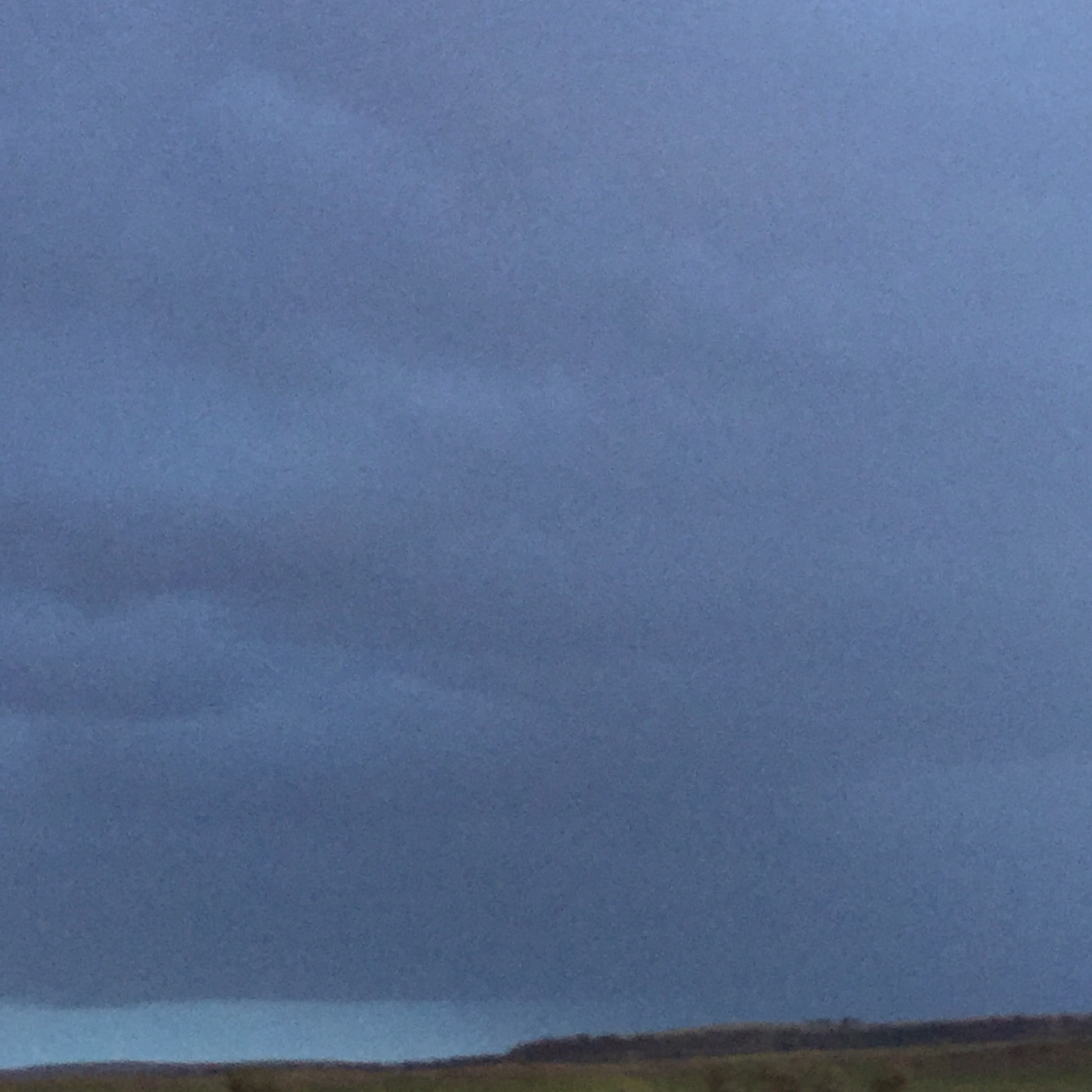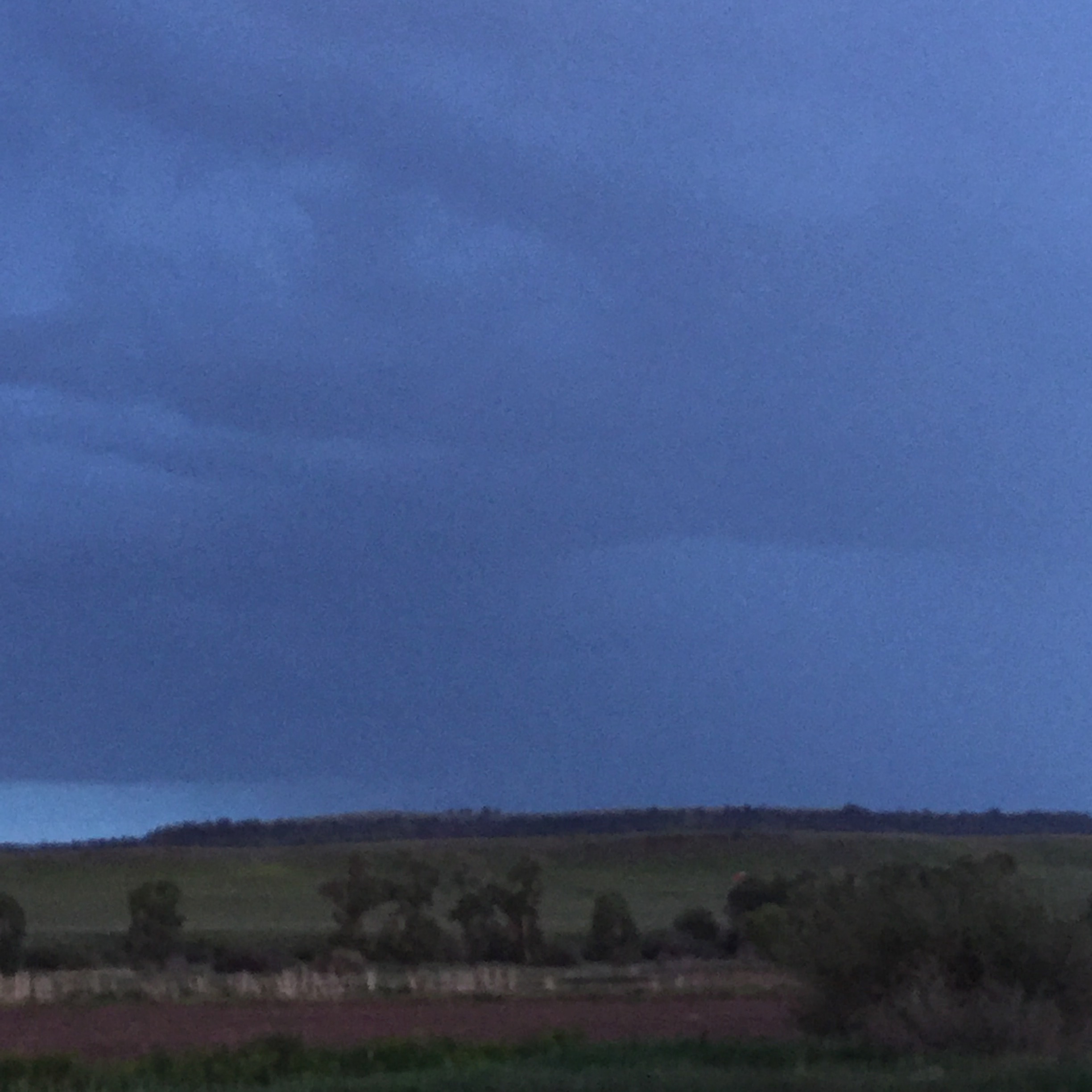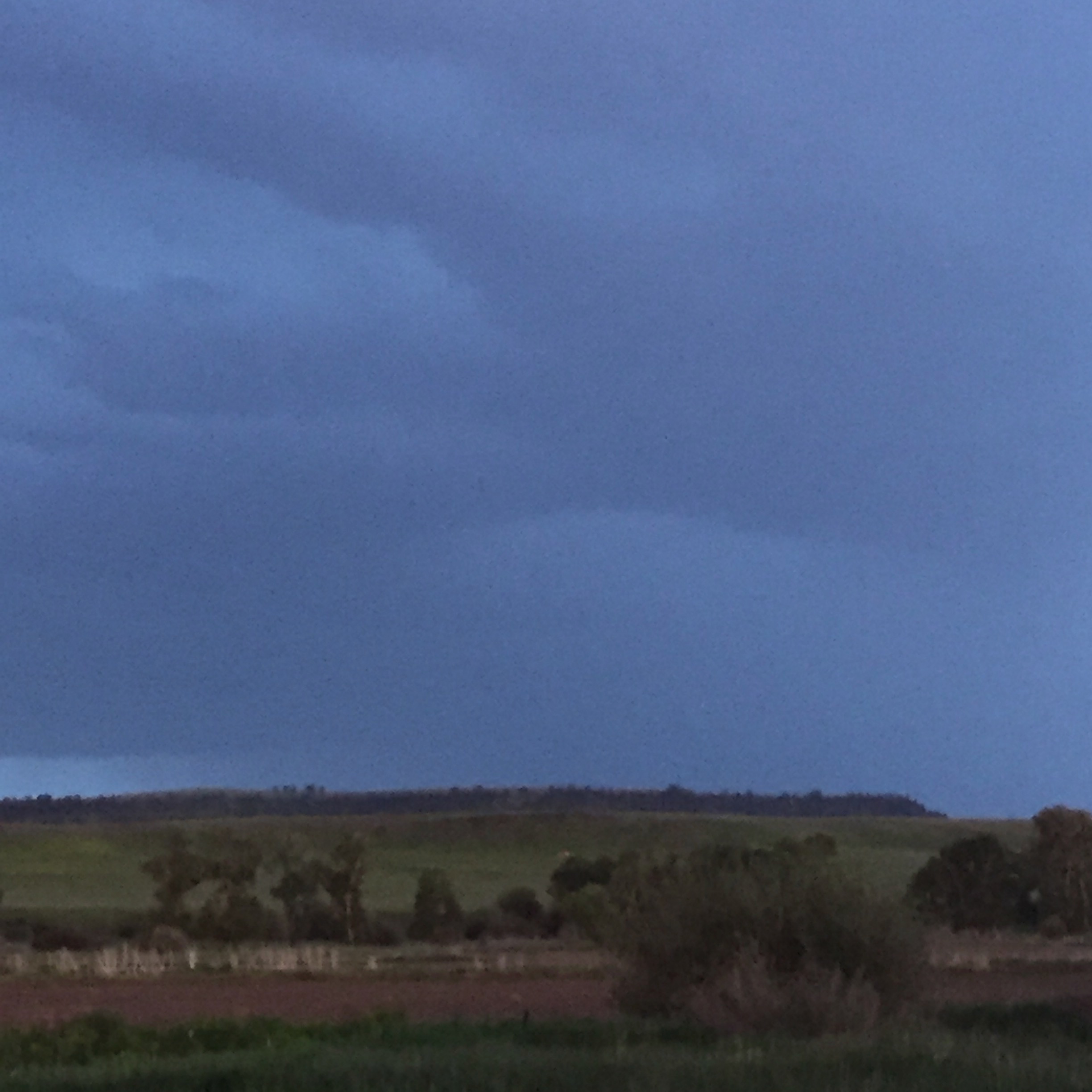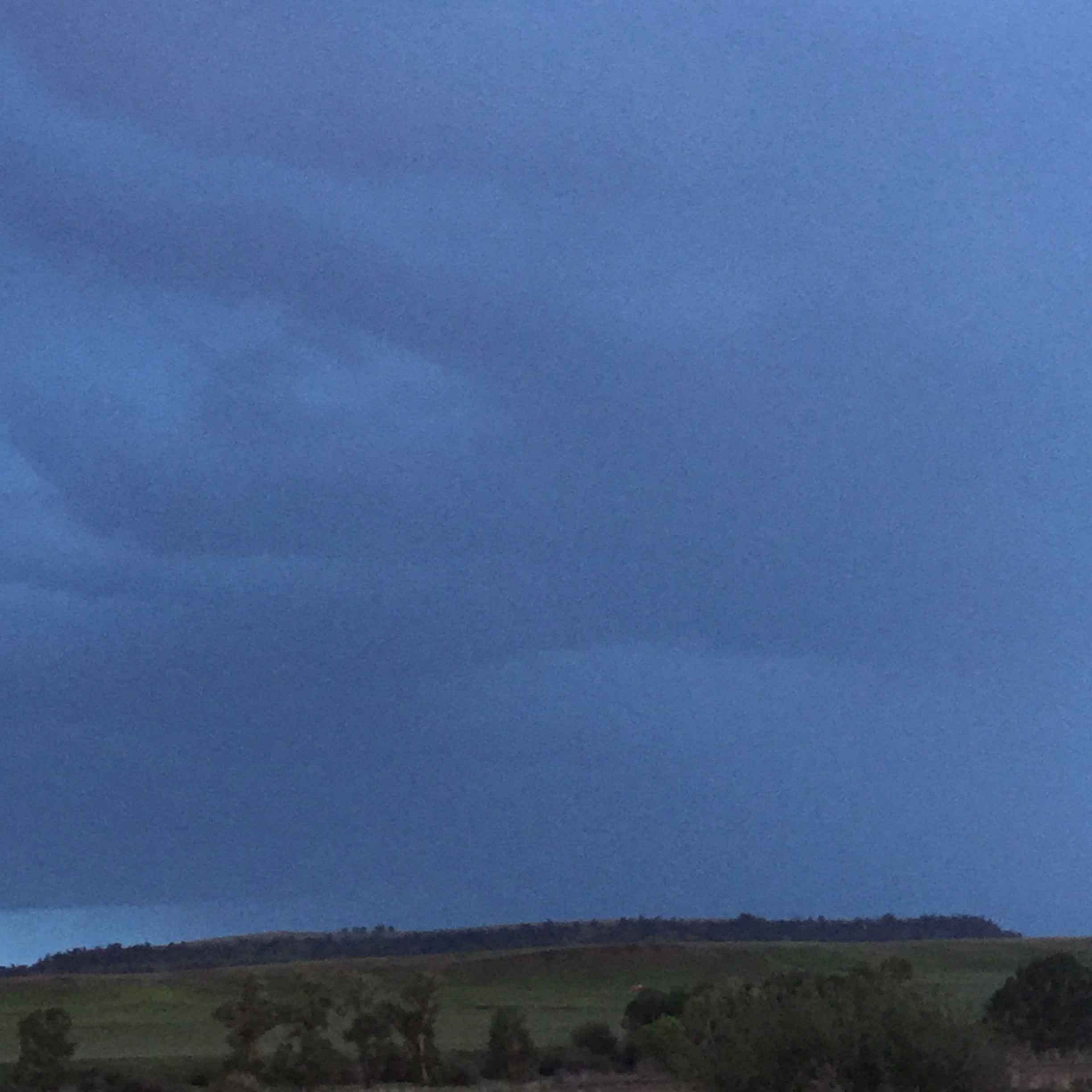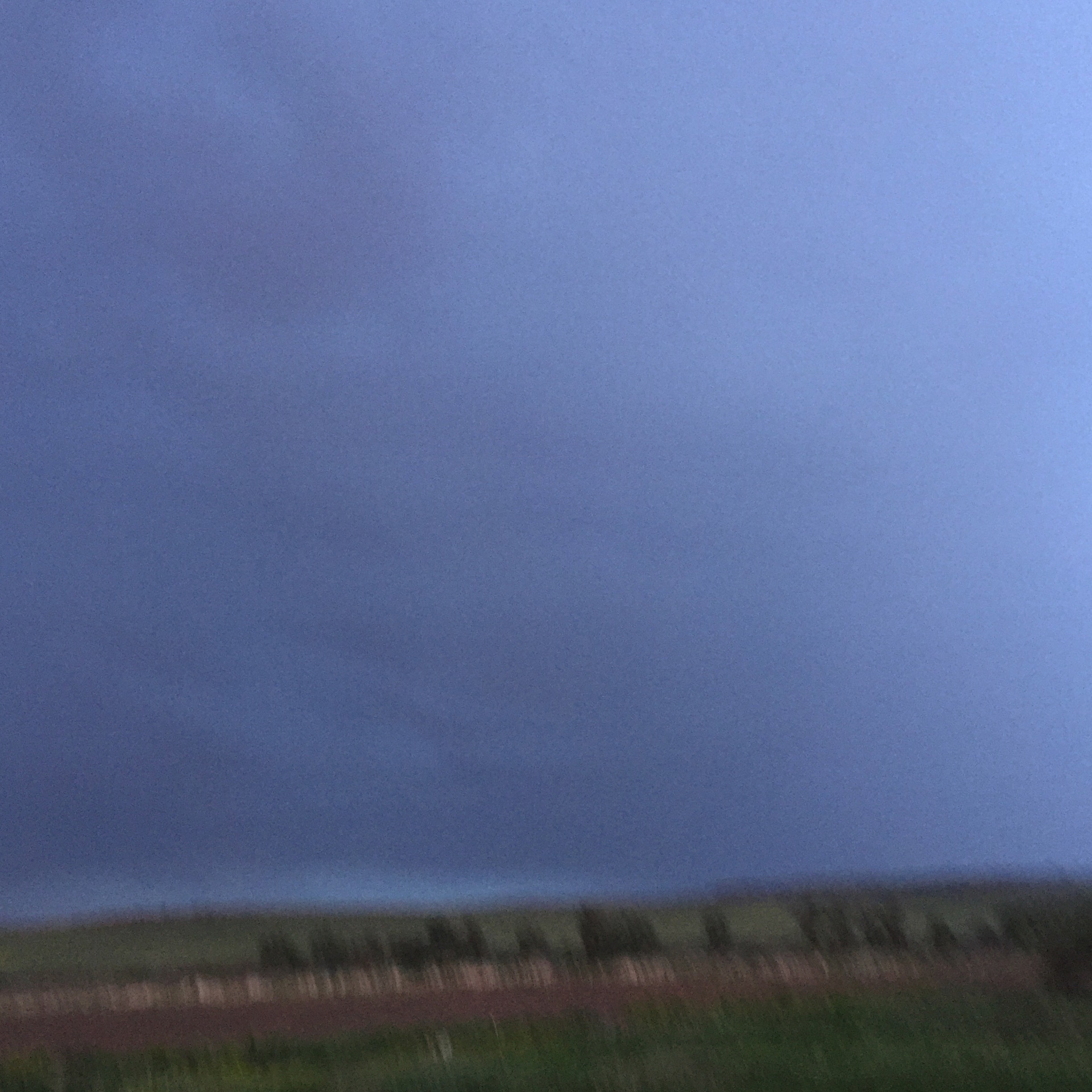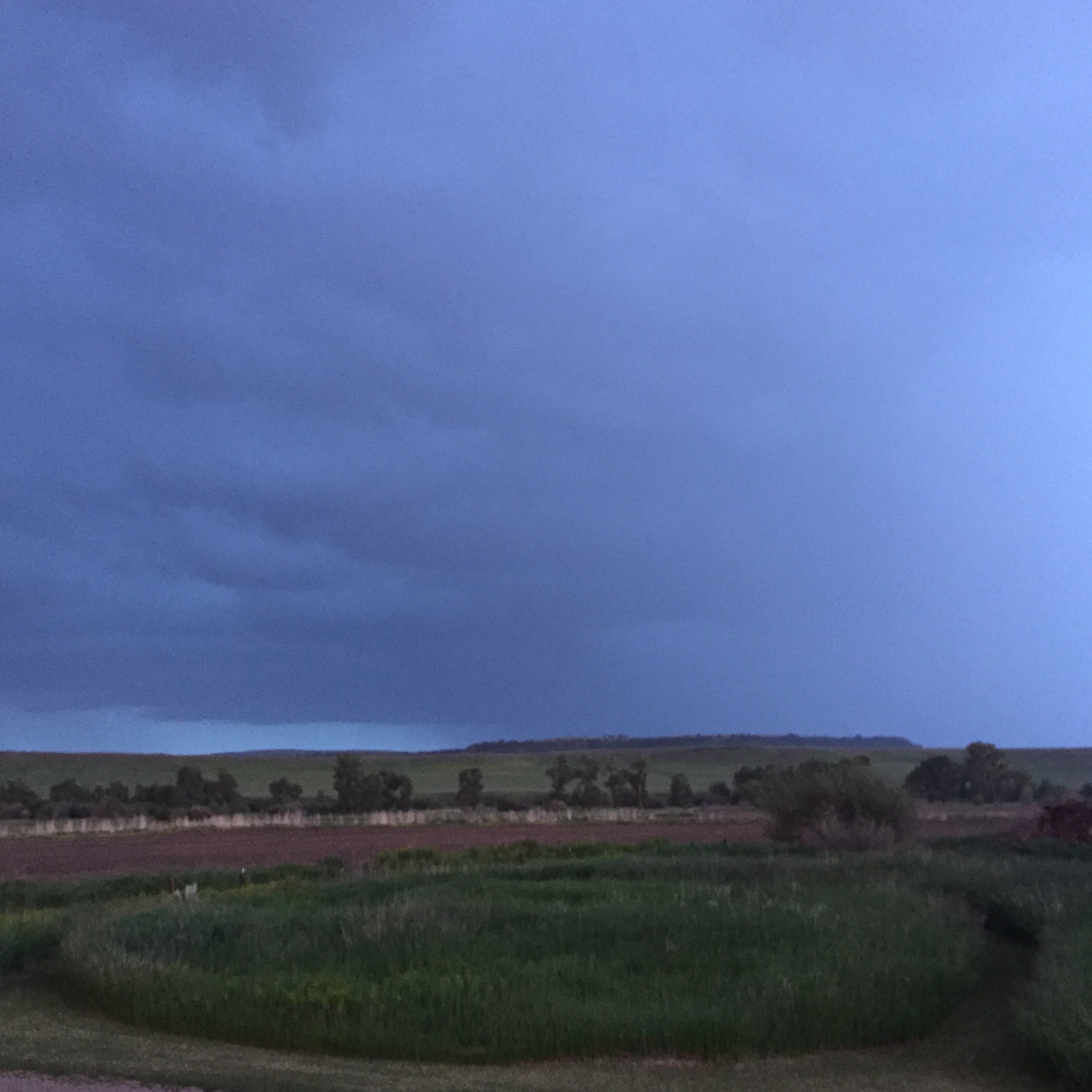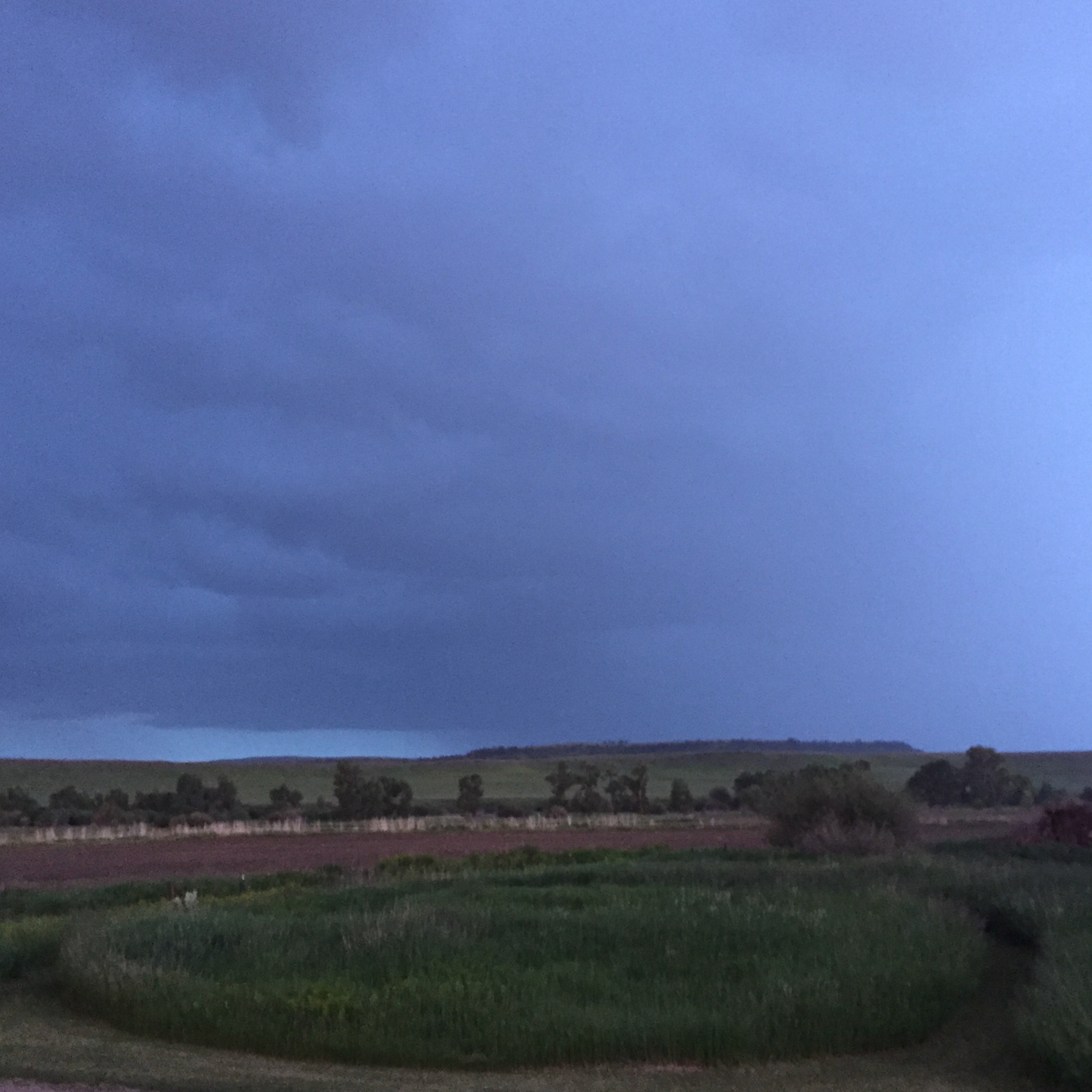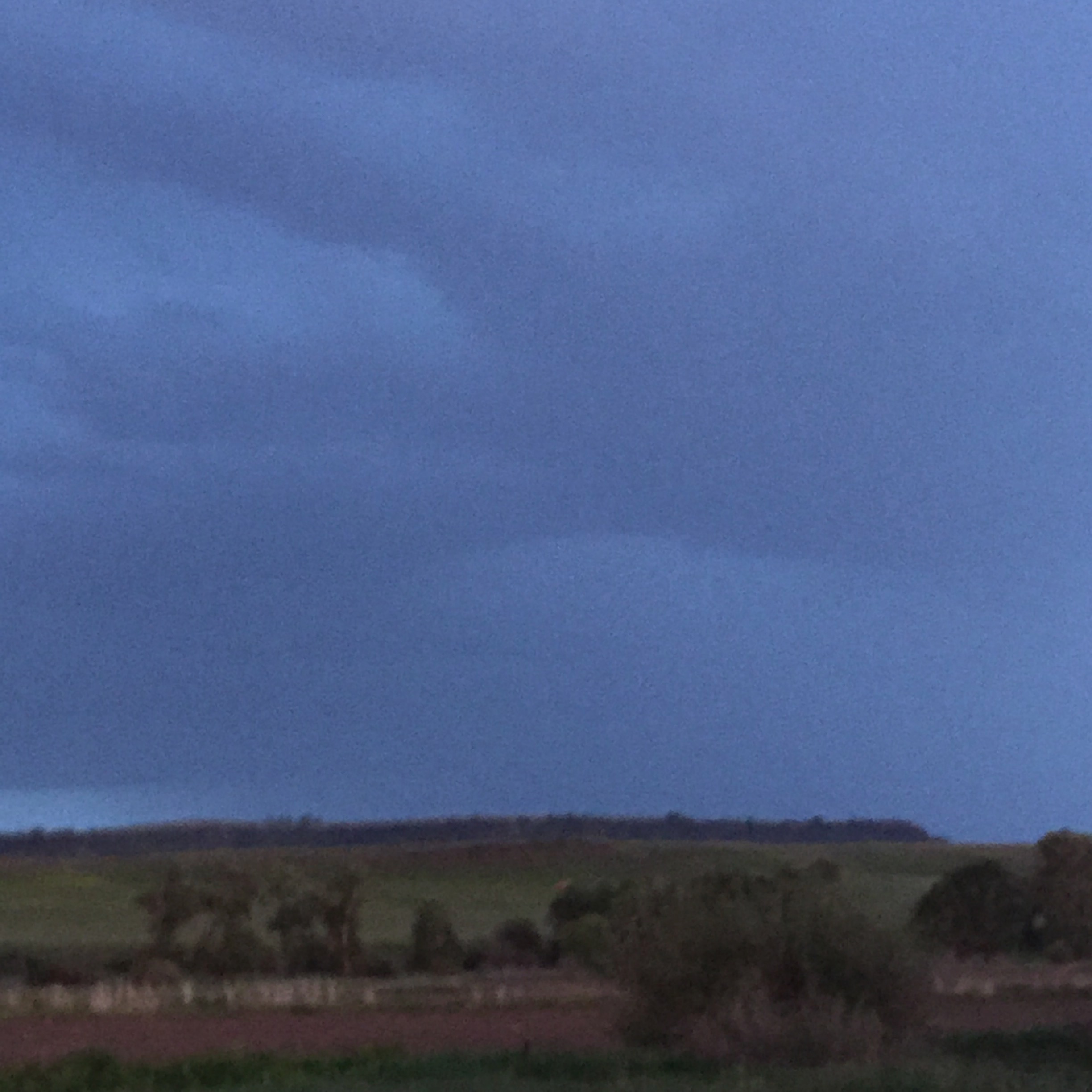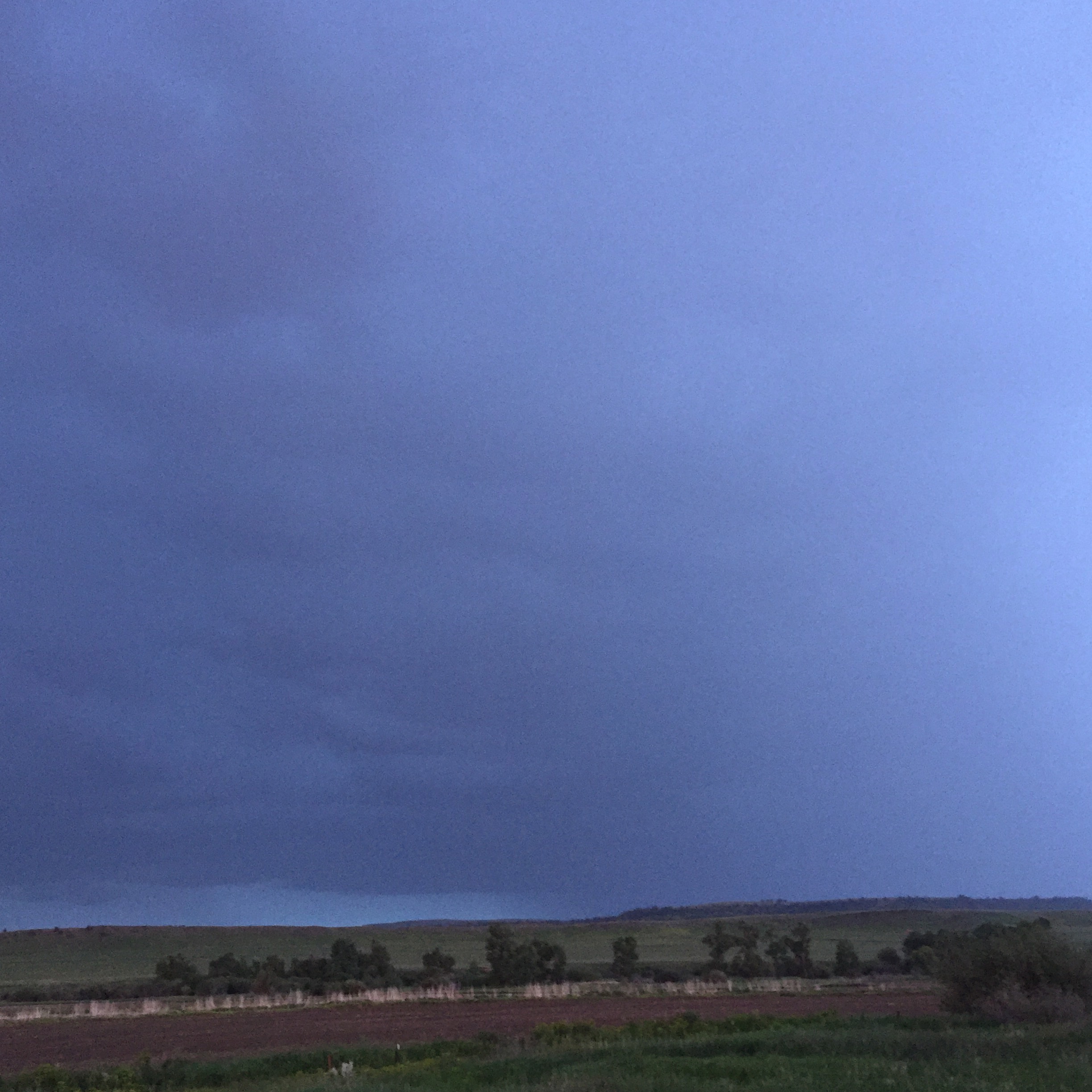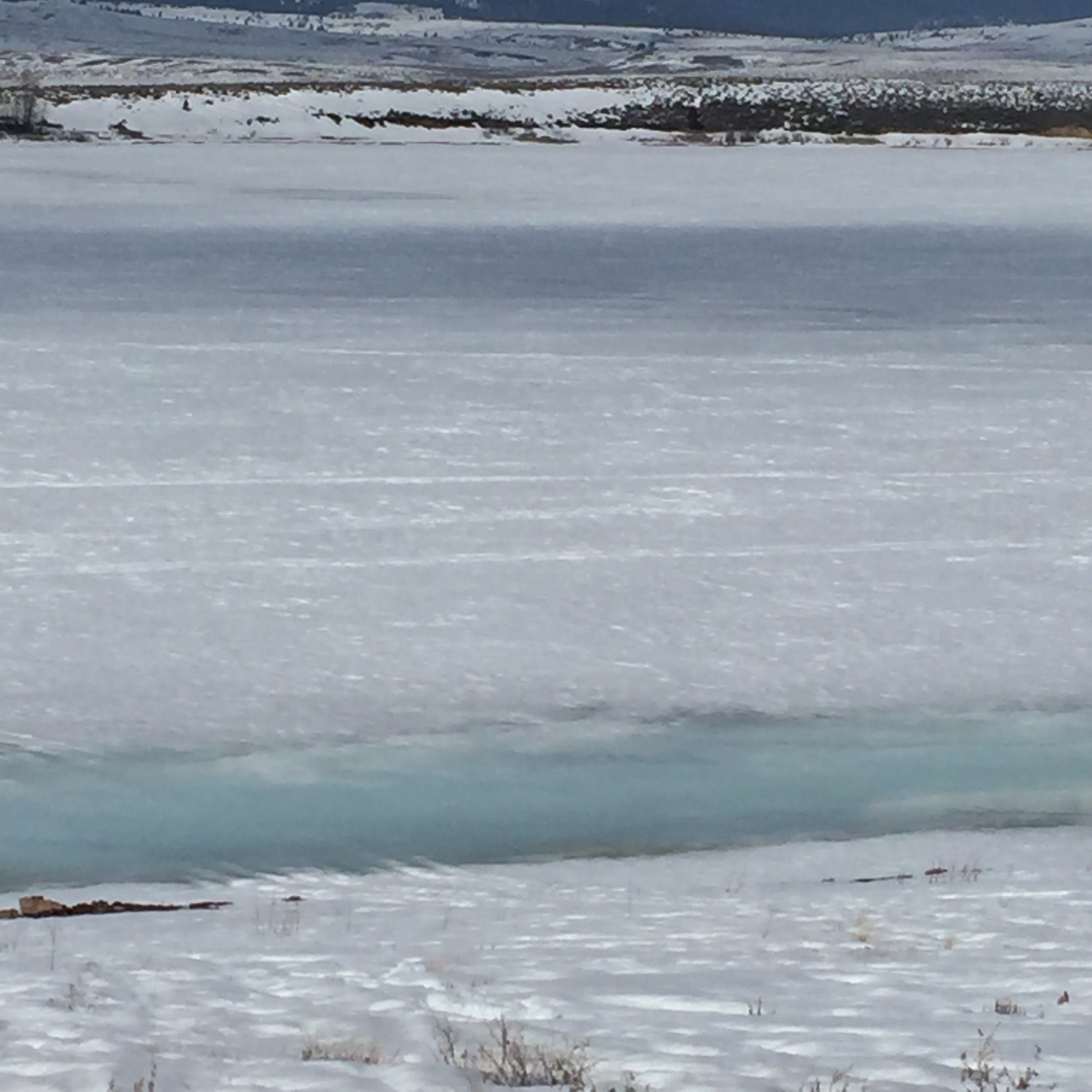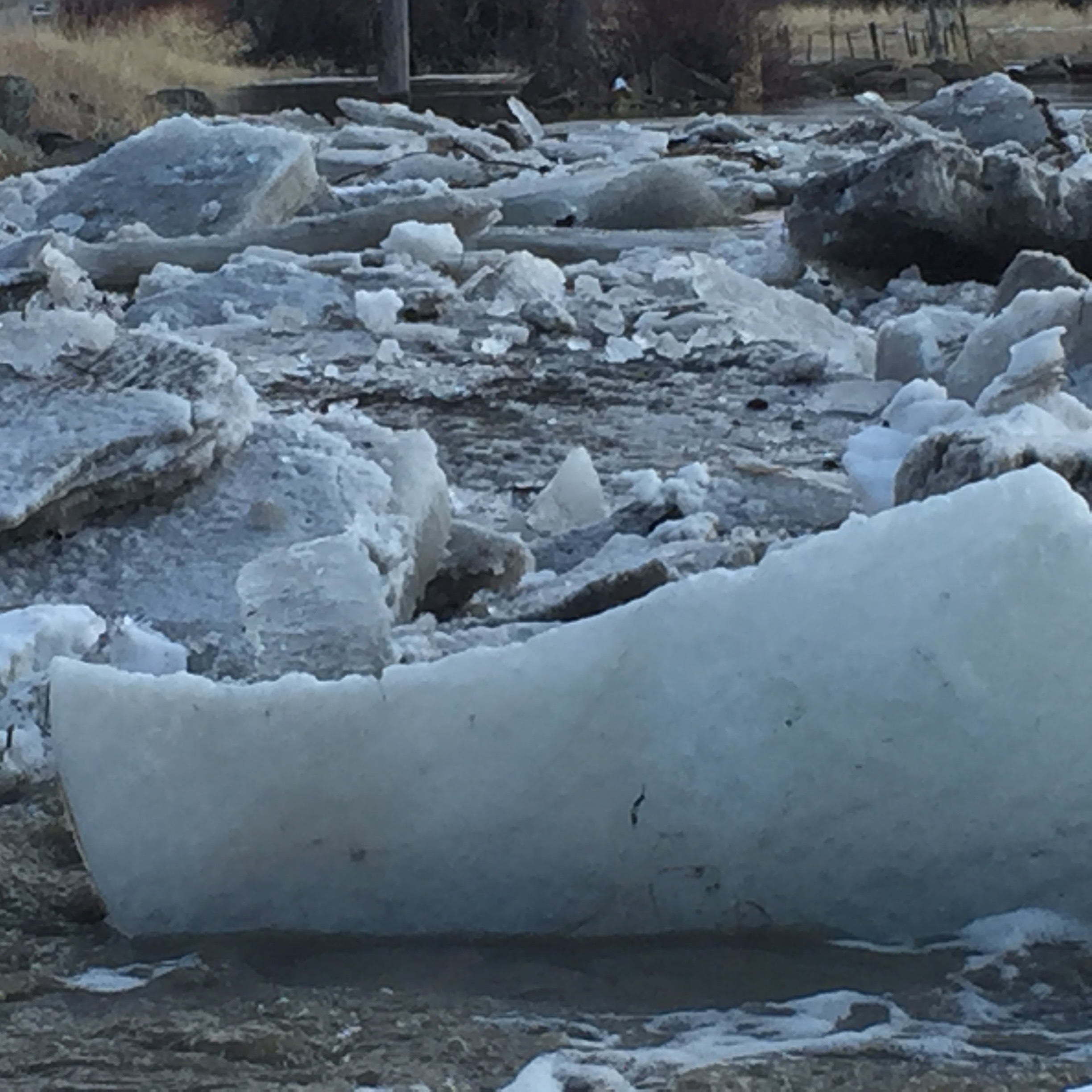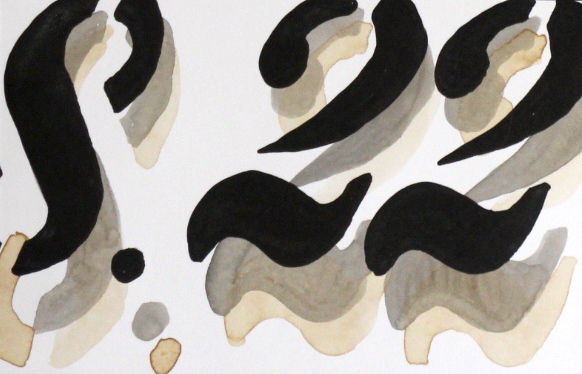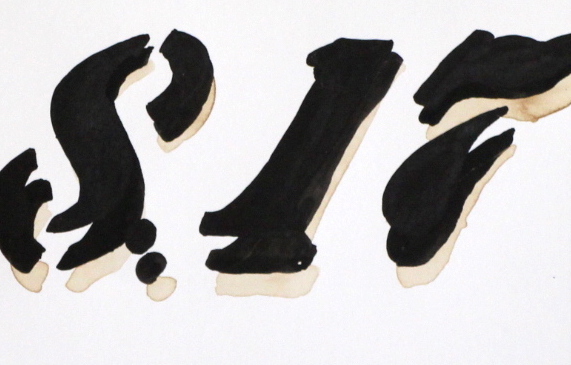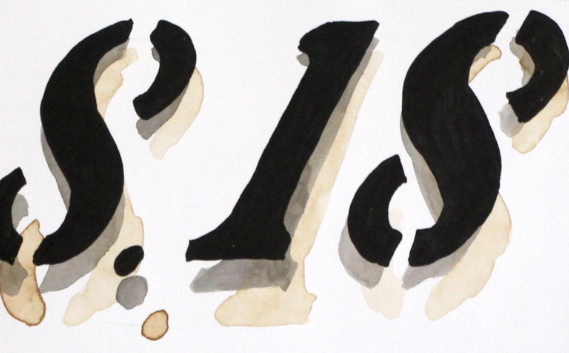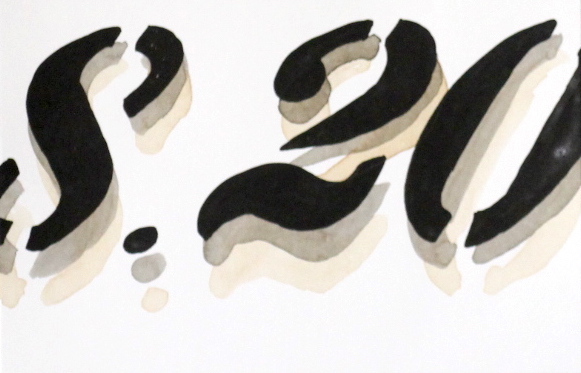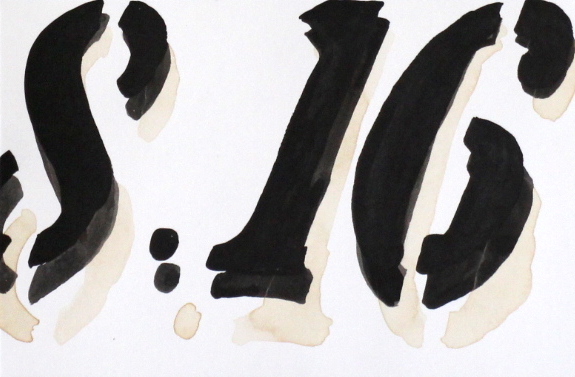I don’t want to write right now. Don’t want to look. Not at the field out my window, bright for harvest. Don’t want to hear the river across the field still running high in this wet year. Don’t want to look for cranes sailing in from sky to field or try or sit still with rabbits in the yard. Don’t want to see the willow turn from green to silver as the wind turns its leaves. Don’t want to look toward the mountains and feel their height and the wild of their depth. I don’t want to see the mist roll in marking summer’s move toward fall and shorter days, or the grass in the patch we don’t mow waving better than the ocean we’ll be returning to. Everything marks the ache of leaving.
thirty-first week: Two Dot
They said it would be 90˚. Summer, a long time coming. Heat turned on in the schoolhouse into July. Raining into August. Fields still green and the yellows of sweet clover still strong. And yet, just as it is beginning, I feel summer’s end encroaching. Richard Hugo said we are easily confused with the weather and seldom better. I’ve sat on the porch in the morning facing east and felt the heat on its way to a fevered pitch, but not yet there. Wind ruffling the tall grass and cooling the skin, but heat coming around the edges. I have felt the pull of the studio table, a place that knows when the striking must be done. But often spend a few minutes more watching the grass quiver and shake while the pages of The Right Madness of Skye lift and settle, lift and settle.
thirtieth week: Two Dot
In July, the days began to stretch into something I wanted to inhabit. Sunrise to sunset, one choice at a time. I could drink coffee slowly, hot to cold. Observe what has been observed many times before, sometimes finding something new. The old horse trailer across the road, grey and rust, parked neatly a year or more ago is aligned with the hedge as if there were painted lines. The neighbor talks of horses, but this is the only evidence. What does he see when he looks my way from his tiny camper window? Someone sitting on the porch doing nothing? I wonder how much we have in common. Silently living next door to each other. Last time we spoke I had to refuse his horses access to my tiny overgrown patch of grass. He valuing food for horses, I valuing the view. A small schism.
twenty eight week: Two Dot
I
We look for exotic birds. Birds rare to our eyes. Drive miles to see pelicans. Use binoculars and telephoto lenses to catch just one. A tiny white dot on the lake, with just enough of an orange bill to say “Yes, Pelican.” Back here in the yard, juvenile robins entertain with awkward antics in the gooseberry growing next to the schoolhouse. We un-wittingly flush them out when walking past or opening the front door. They bluster and fly around, but always return. And if we are very still, they stand on the sidewalk and preen. First under one wing and then the other. They crane to clean their back and if a wind comes up, their young feathers ruffle and lift, letting the light come through their youthful spots.
II
We have spent more time with bird books than with birds. Every author’s photo or drawing slightly different and none exactly like what we see. And yet, here in the cottonwood, not 10 yards from where I sit, so close I crane my neck like a preening robin to see the top branches from around the brim of my hat, three or more distinct bird songs come from the throats of birds camouflaged in the leaves. If I listened long enough I might know them without identifying-names attached.
III
Two cranes flew in, under a blue sky scattered with a few strips of clouds. Their landing like an aircraft, broad wings leveling to the ground, but without the bump of wheels touching. Two others in the field already foraging, don’t look up when this pair raise their necks to full length, and open their throats, beaks to the sky. Trumpets, but a staccato, croaking trumpet. They announce their presence in unison. And then, as one, they lower their heads and walk, pushing the other pair in front of them to the irrigation ditch. The cranes stride reminds me of camels… as if I had ever seen a camel… head jutting forward, long thin legs following. All four birds cross the ditch. One pair nudged by the other. Once crossed the pair that has landed and pushed the other pair out of the field, stop and call in unison again. A triumphant duet. They are answered from a distance by a third pair. Advance, retreat, claim and acquiesce while I watch from the porch. Debra Magpie Earling called it encroachment and displacement. It is familiar.
twenty seventh week: Two Dot
John described the weather while I soaked in the tub. The trajectory of the rainbow that had begun to emerge between the descending sun and storm clouds and then the lightning. “You have to see this,” he called then described the lightning striking through the rainbow. Of course, I would never see it. But after getting out of the tub and into pajamas, I went outside in the rain and hovered under the eaves with my phone, trying to catch images of lightning strikes. I now have 69 images of a grey storm sky that only holds the memory of a momentary erratically zig-zagging crack of light. Lightning such a delight if you are not threatened or failing to capture it in a photo.
seventeenth week: Boston
Leaving home by air. All of Puget Sound revealed. We live in a complicated waterway. Fingers of water seem to work their way toward the mountains becoming rivers of low-lying clouds. So many lakes tucked into rugged peaks, white flat collections of water, ice and snow. I think I saw The Enchantments, a place mythical to me as I have never hiked the Alpine Lake Wilderness, but part of my landscape just the same. Leavenworth, Cashmere, Monitor, Wenatchee, and the Columbia River quickly give way to dry hills. Across the river, bright irrigation circles leave corners revealing what the terrain is when left alone. All of these changes and only 25 minutes in the air. Big Perspective. We are crossing the nation in under five hours and will take four weeks to make our way back in a patched together replication of a journey that took my family nearly 400 years.
*
We didn’t visit Plymouth. I didn’t see the rock. I didn’t breathe the air and use intuition or speculation or imagination to get a sense of the first of my family to immigrate to North America. Instead we stayed 30 miles south of Plymouth with an immigrant Chinese family. Mother, father, and daughter crammed into one room while John and I rent the other room. This family is farther from home than my relatives were when they traveled the Atlantic from Europe to this very bay hundreds of years ago.
There are questions around the American forefather of our family, George Morton. He is not the famed George Morton that can be found on Wikipedia and in the manifest of the Anne and Little James that arrived in Plymouth in 1623. Our George may be the son of the famous George, born a few days before his father’s death. Or he may be famous George’s grandson born to his first son, Nathaniel. But he may also be a nephew once removed, born to Thomas, son of famous George’s Brother, who was a bit of a dissenter and fraternized with Indians. There is even a remote possibility our George was born to William Morton, a servant to John Banum in Elizabeth City, Virginia. These possibilities make the reality of George Morton, my 8th great-grandfather and the first of the family to be born in North America, more real. Unacknowledged son, questionable son, ignored son, all seem true to what families can be. For now, I will live with our family tree erupting in this country from this soil.
Su Zhen has been in this country long enough to have no accent, to have graduated from Cornell, and to be applying to law school in top-tier Universities. Her mother speaks no English. I met the mother one night around 11 in their tiny kitchen unloading the dishwasher with Su. Her hair freshly brushed, hung straight down her back and showed no evidence of grey. She wore a long dark blue bathrobe the same color as the towels and sheets and lampshades in our room. Was she responsible for the décor of the apartment? Were we sleeping in her room? She seemed a little uncomfortable to see me. Was it the fact we were all in pajamas or that she depended on her daughter to communicate, or was it something else? Something completely outside of my experience. The kitchen counters held a mix of cultures: Yamamoto Jasmine Tea and Maxwell House Coffee, Torani Vanilla Syrup and Shao Xing Cooking Wine, a rice cooker and a Ninja espresso machine. In the refrigerator there were stacks of individual flavored yogurts and clam shells of tiny eclairs. I didn’t see the mother again and never saw or heard the father. Did they confine themselves to the master bedroom where the three of them slept while leaving the other bedroom to let out via Airbnb?
What makes one immigrant different from another immigrant? Is the forsaking and the seeking similar? Su Zhen’s parents surely came to North America for perceived opportunity. I suspect there was both sacrifice and hope for something different for their daughter. I can only imagine the same in my family. If I jump from the grandparents I knew back eight generations and speculate that something carried through, I can guess the Mortons looked for a combination of freedom and better financial prospects. The research points to a compromised beginning for our George Morton. He was certainly un-acknowledged by his parents. But from his time forward, generation after generation of Mortons were acknowledged. Names and stories passed down to me and all the descendants, so that now I can cross the country touching the places where they were born or where they took jobs and had children or where they left their final markers. Will Su’s family look backwards or forward? Will the United States be a better place for them? And how will they leave their mark on this place we all call home?
twelfth week: Two Dot
blinding luminescence, seductive blue, and rubble
The fog was a heavy blanket as we drove out of Great Falls and turned onto King’s Hill highway. We had to either believe in the road or get out and walk. On-coming cars emerged from the brilliant white veil, first with the faint yellow glow of headlights and then immediately the whole vehicle rolling past. Everyone trusted in the rules of the road and drove on. Eventually we dropped below the cloud layer into a luminescent undersea where the fog above us and the snow around us seemed nearly the same. Weather is not a garnish in Montana. It ever-changes and surprises. While we are not 100% dependent on the weather as our ranching friends and family, the weather affects our everyday.
We left the fog on the North side of King’s Hill. Driving into the Musselshell valley, high white clouds dappled the blue sky. We’d only been gone a day, but the snow melt was visible. Patches of parchment colored grass blotching the white. The edges of Lake Sutherlin were rimmed by blue melt - a color that evades description. Baby blue, sky blue, tiffany blue, powder blue, ice blue - perhaps Celeste Pallido. But not even pale heavenly blue accurately describe the blue of fresh ice melt, a color that defies its undoubted frosty temperature. I want to venture into its celestial depths just to be surrounded by that shade. At the very least, I want to paint my car, my eye lids, my fingernails this magic color. I imagine I might be able to find it in my paint box, at the same time knowing it cannot be captured.
Robert MacFarlane spent years collecting terms to describe landscape, in the belief that what we don’t describe in detail, we haven’t really seen. In the introduction to his collection he describes the Northhamptonshire dialect meaning of ‘to thaw” as “to un-give.” Montana is in a state of thaw. It is typical to the time of year, but something I haven’t experienced before. I have tried to see the “un-giving” of the process. Surely the whiteness, the thickness of drifts, the hiding of features is being taken away by melt. But there is also a quality of giving to the thaw as the resulting water saturates the ground either in a nourishing way or as a destructive flood. Giving? Ungiving? Sustaining? Destroying?
When we turned off the highway for home, I hoped that the river would still be ice covered at the bridge. I wanted the picture, that I had not yet taken. But I suspected the ice would have already melted. Nothing prepared me for what we saw. I have never seen an ice run. And now I am stuck with MacFarlane’s charge to find the words to describe it. The ice lay in chunks piled across the river creating an ice jam. It was an architectural ruin, remnants of something that had been constructed, but failed. I snapped photos on my iPhone. Made inarticulate pronouncements, like “oh wow” to our neighbors who also gathered at the bridge. The ice was still, having found a place of stasis between the acting force of water and the resisting force of the bank as I have now learned from reading about the process. Our neighbors, who have experienced this many times before, pointed upstream to a raft of broken ice plates coming toward the bridge where we stood. Before the first piece of ice hit the jam at the bridge, the increase in current that comes with approaching ice, flowed under the jam and dislodged it. All of the ruin, the accumulation of ice rubble, was suddenly free. And then the new slabs hit. The entire channel was in motion, ice blocks sucked under the water or rising up out of the current. The current rushed and splashed while the blocks cracked into each other. I was sure the river would be clear of ice in just a few minutes, but just as quickly as the breakup began, it found a new configuration and stopped, leaving ice slabs tilted and piled up as high as four feet above water level. All seemed to be in stasis again. If the weather held, the ice would continue to degrade, the flow would accelerate, more ice rafts would come downstream and something would break loose again.
It was hard to leave the bridge. Was it a fascination for wreckage? Or more likely, a pull of baring witness to natural forces, things that are not in our control and remind us of our place in the system. I know our neighbors are moving their cows today. The river is too volatile for the animals to remain in the adjoining pasture. While they work to protect their livelihood, I am wrestling with words to describe a shade of blue and the sound of ice hitting ice.
sixth week: Seattle
On a recent morning, while laying very still, I heard my old cat’s regular snoring and was momentarily confused as to whether the sound came from her or from me. She sleeps most of the day and I’ve grown accustom to the faint wheezing of air through old nostrils while I wrestle with words at the computer. We’ve grown old together, my cat and me, she accelerating at a faster pace. I was nearly 50 when she was a kitten, but now I think she might be beginning to pass me up. The arthritic limp I see as she walks across the room is not so pronounced in me. But for just a moment, we seemed to be nearly even keel and I was uncertain who the wheezing came from.
fourth week: Seattle
Finding all the pieces. A stack of rags is altered by folding, yet doesn’t try to masquerade as anything other than rags. The broken bowl, settled into a depression made by its own shape, is broken precisely in two halves. I thought of gluing it, but found it rested more whole on this humble stack.
third week: Seattle
The days my own, their beginnings defined by a cut lemon: glistening, bright, astringent, sharp-sweet smell, held in a triangle of pitted yellow and white pith. One triangle submerged into hot water, an old lady’s drink. I am not embarrassed, have no regrets. I relish the warmth and brightness. The comfort of habit. An anchor in the vast sea of an open day. Coffee will come later with its oppositeness of color and smell and its sameness of something to be counted on. In between these two drinks, before and after their footing, are the words: read, written, and sometimes spoken aloud just to hear the shape of their sounds.
Two Dot: here = there
here = there is the chronicle of a placed longed for becoming a place inhabited. Following are selections from the last two years of documenting daily experience on dated postcards. The date images were captured each morning in Two Dot and registered by hand in ink and coffee as the sunlight traversed through a stencil. It is a marriage of precision and in-precision, control and control given away. The postcards were mailed to anyone who asked for them and to some who didn’t.
Two Dot: leaving
Today sun in the morning, as if to say “Don’t go.” But we persevere with our to-do lists, the tasks before we pack and leave.
The sun emerges around the house / stands in the middle of the road / and breathes on us with its red blast. / Innsbruck must I leave you.
But tomorrow there will be a glowing sun /in the half-dead grey forest \ where we have to work and live.
-Tomas Transtromer
“Landscape with Suns” from The Sad Gondolas 1996
Two Dot: migration
A hundred starlings flying around the house disturbed my dreams, pulling me up from sleep's depth with their swirling. It is impossible not to think of Hitchcock’s birds. It is impossible not to want to get out of here.
Starlings have claimed the mornings but in the evening a reasonable flock of yellow warblers and a few red-winged black birds perched in the choke-cherries across the road. Occasionally some collective signal lifts them from the branches and then they settle back down again... maybe spreading to the nearby fence wires... never swarming or threatening.
Wild swings govern my days. The desire to go home suddenly swirls around me, overwhelming... a flock of starlings lifting from the ground at once in a clatter of wing flapping without indication of their unison direction. Both cause me to duck, hoping to avoid collision.
Other times of day are not governed by sudden movements; the rhythm of work setting a tone. It is not complete stillness but movement back and forth with small rises of energy. In these times I am saturated with the desire to continue, as content as the warblers on the fence. But I am imagining that even the warblers must be feeling the urge to re-locate given the hint of winter in the morning chill.
Two Dot: twilight
This summer’s twilight is made of smoke. We turn the lights on in the morning to alleviate the dim. Last night was restless and full of coughing. and now the view out the windows is hazed like an ancient oil painting. One window, if I tilt my head just right, holds a classic landscape with a proscenium made of a ripening hay field, trees as curtains on either side. Layers of hills grow progressively soft as they recede. “All the world’s a stage.” There is meaning in the setting as opposed to the action.

